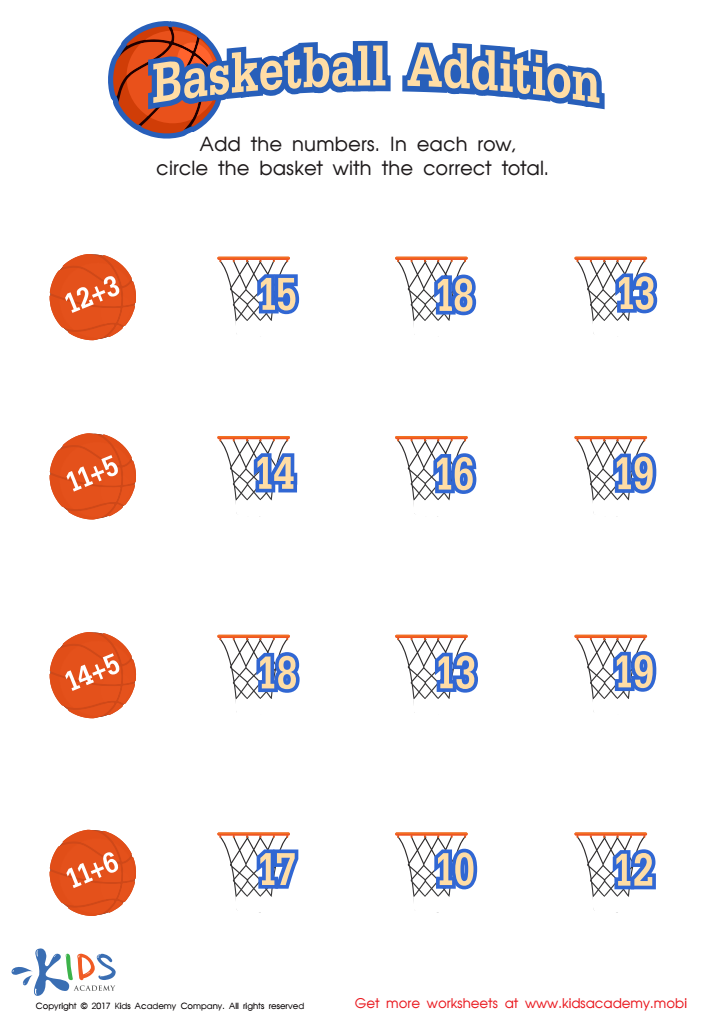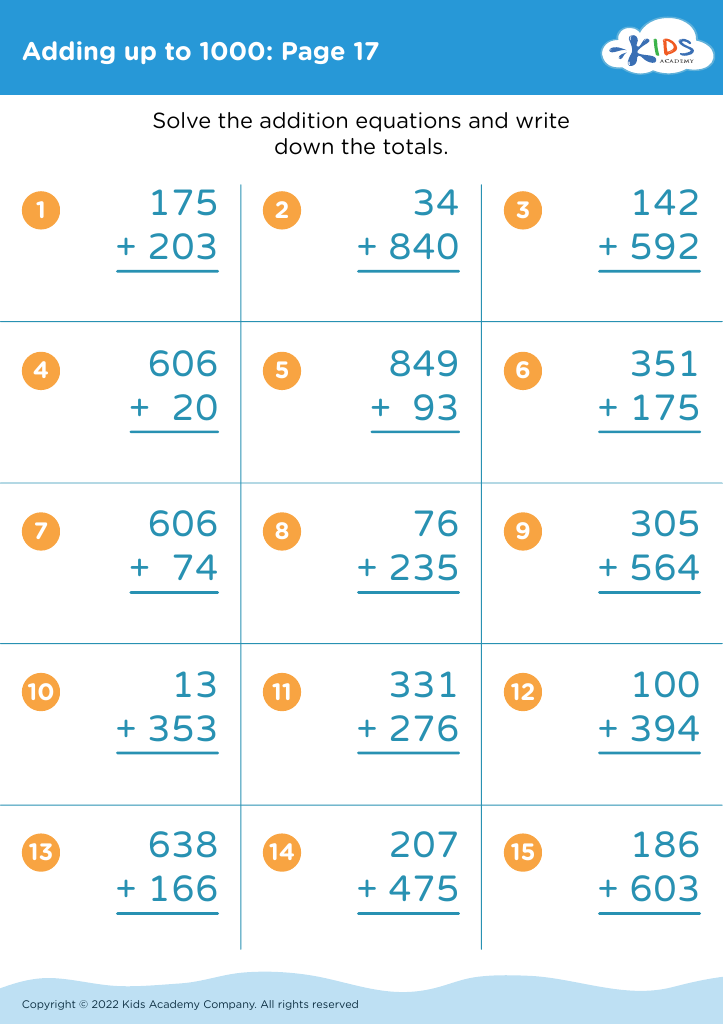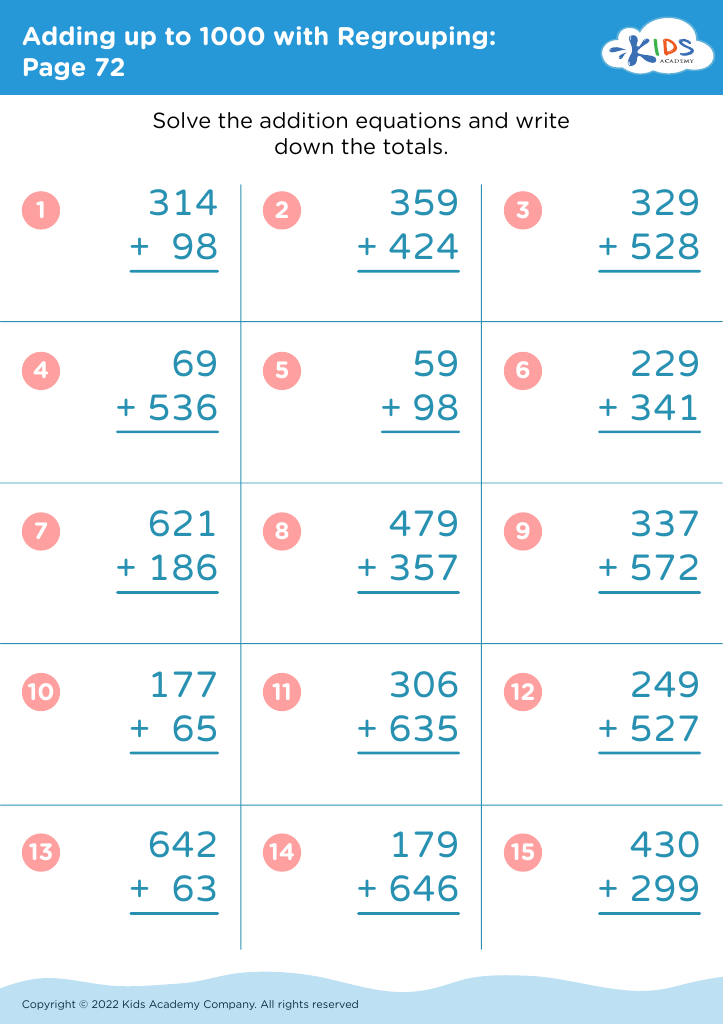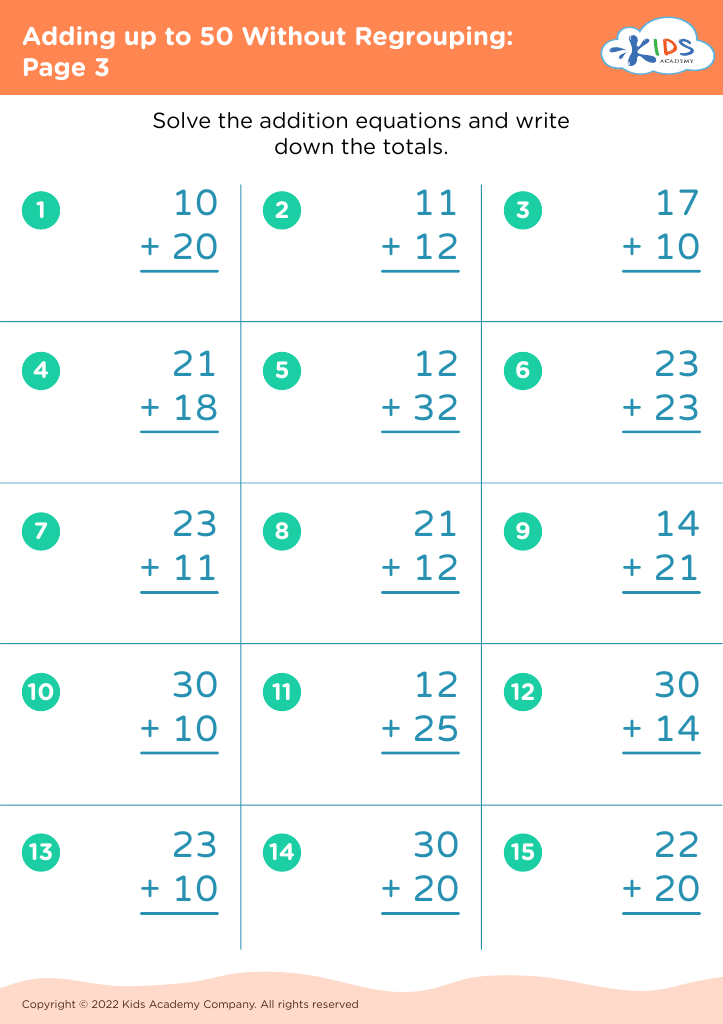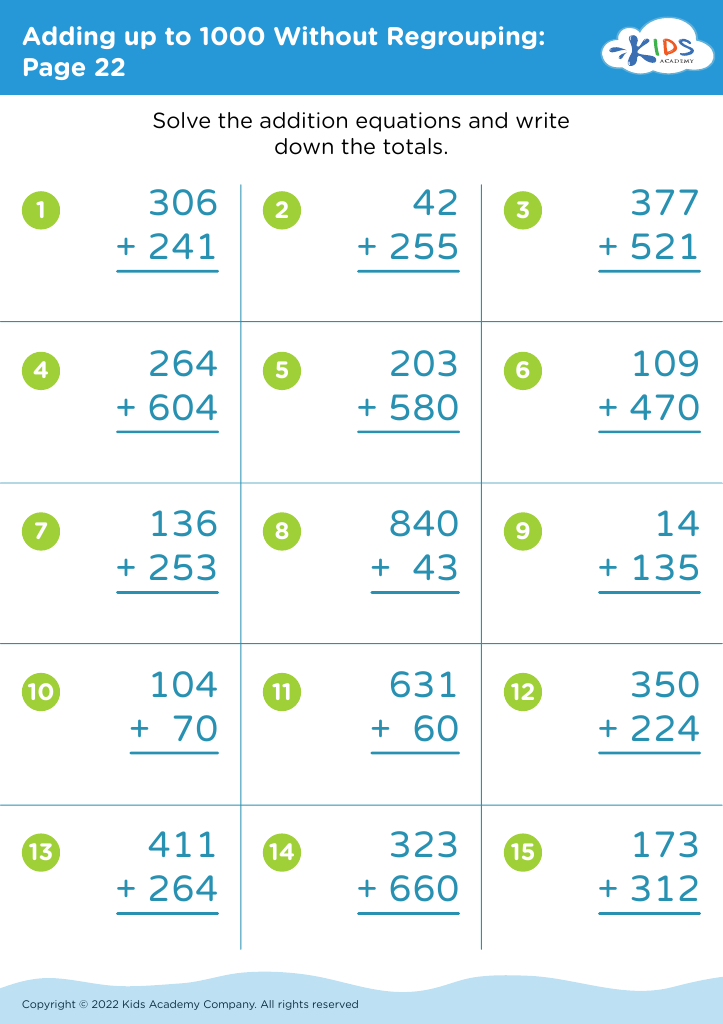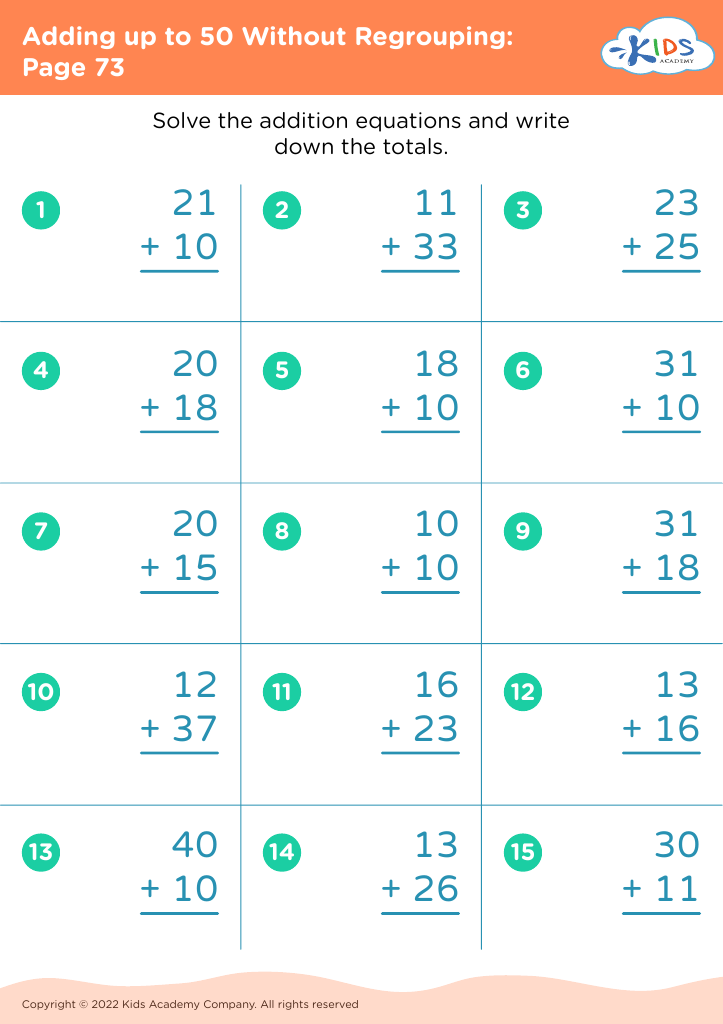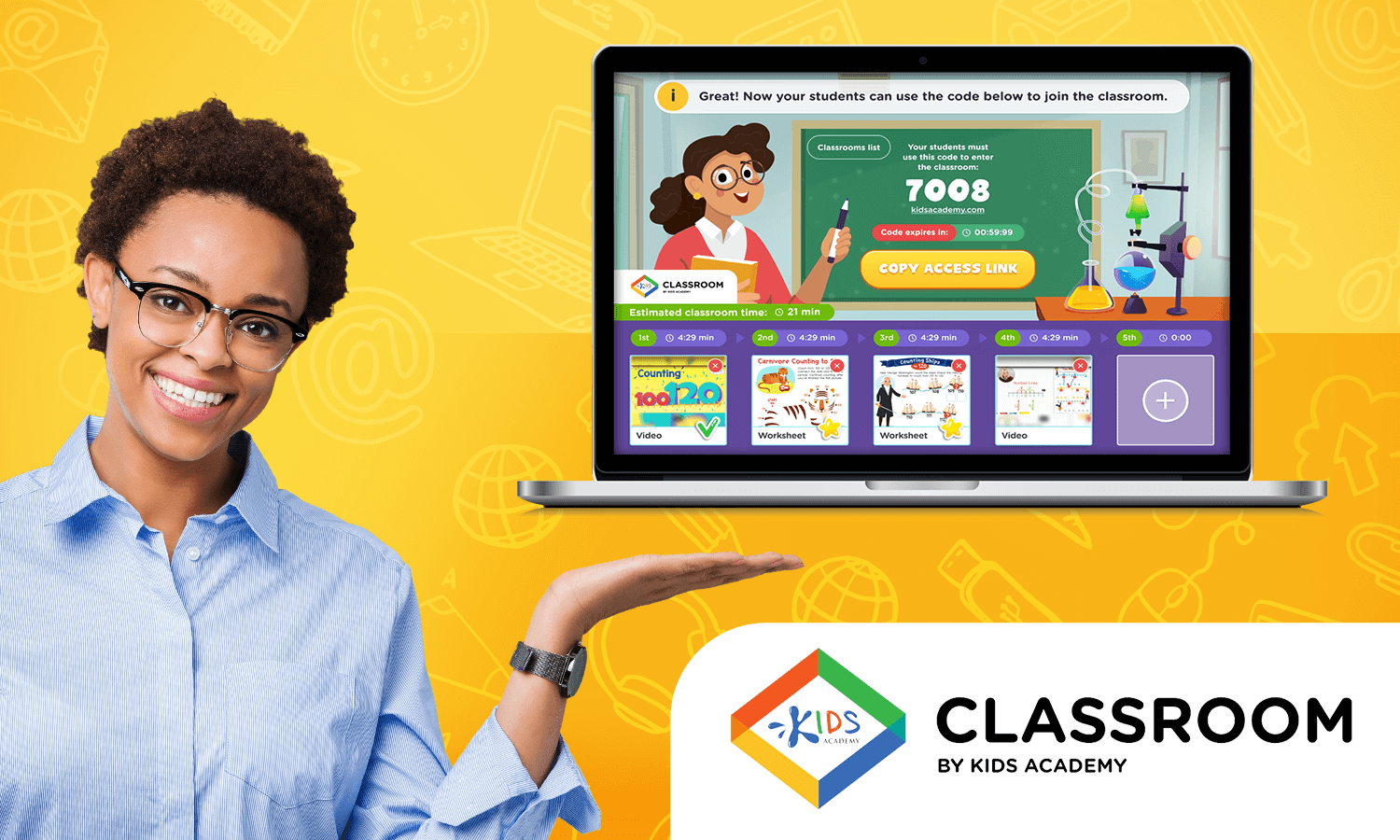Problem Solving Worksheets for Ages 7-8
27 filtered results
-
From - To
Discover engaging problem-solving worksheets designed specifically for children ages 7-8! Our collection offers fun and challenging activities that help young learners develop critical thinking and analytical skills. Each worksheet is crafted to enhance cognitive abilities while keeping kids entertained. From puzzles and logic games to math problems and real-life scenarios, these resources encourage creativity and independent thinking. Perfect for classroom use or at-home learning, our problem-solving worksheets are user-friendly and aligned with educational standards. Equip your child with essential problem-solving techniques that will benefit them in school and beyond. Dive into our worksheets and watch their confidence and skills flourish!
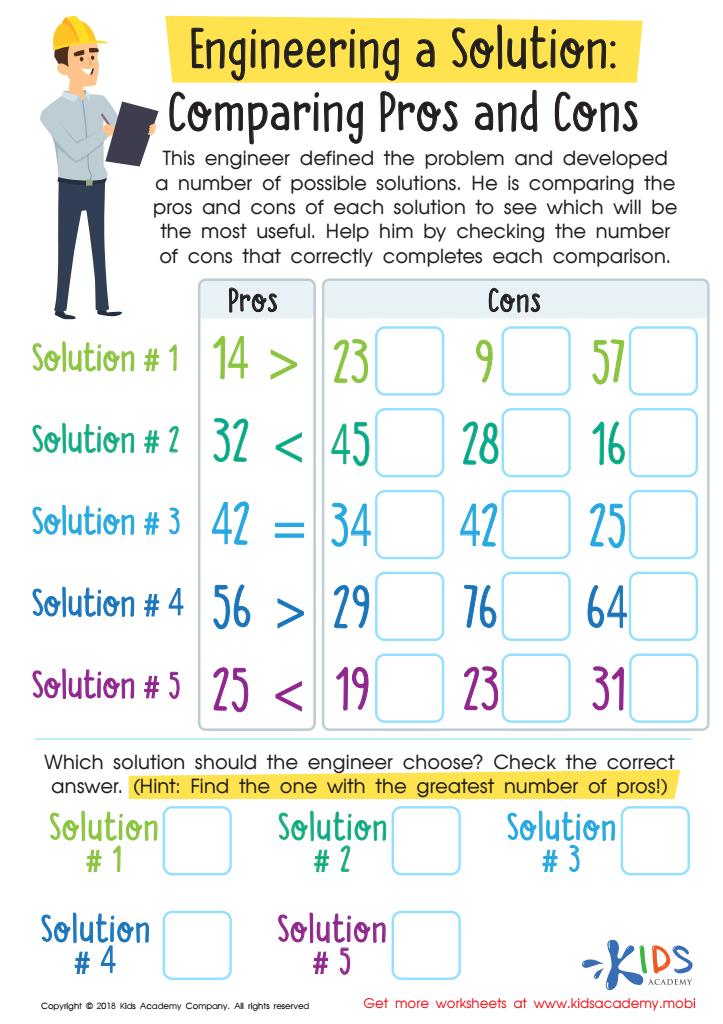

Engineering a Solution: Comparing Pros and Cons Worksheet
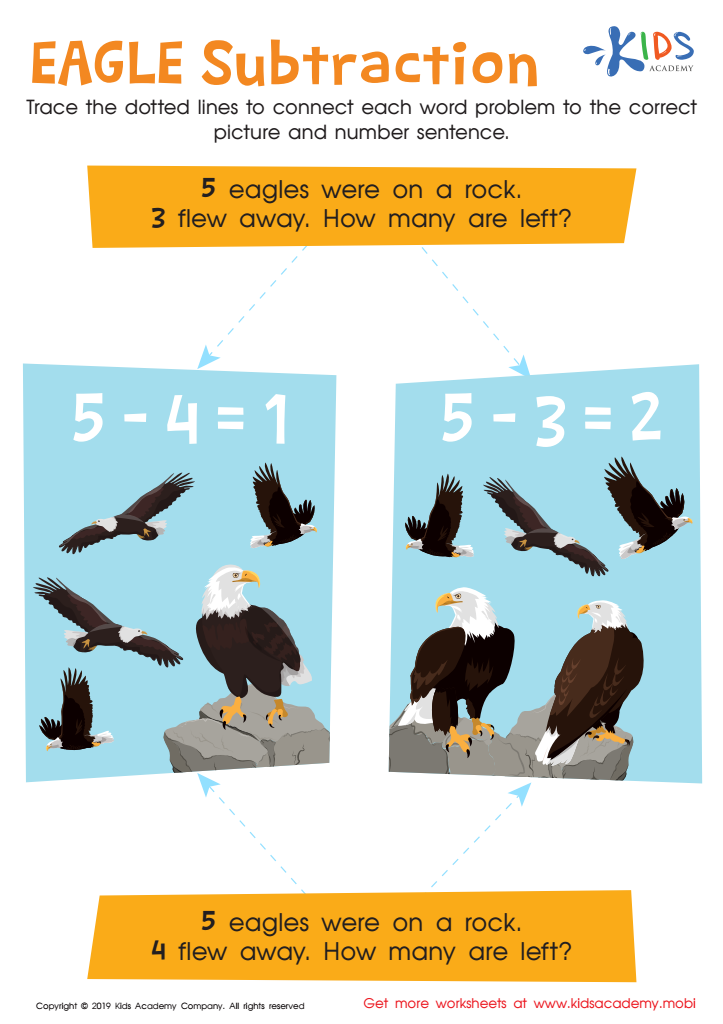

Eagle Subtraction Worksheet
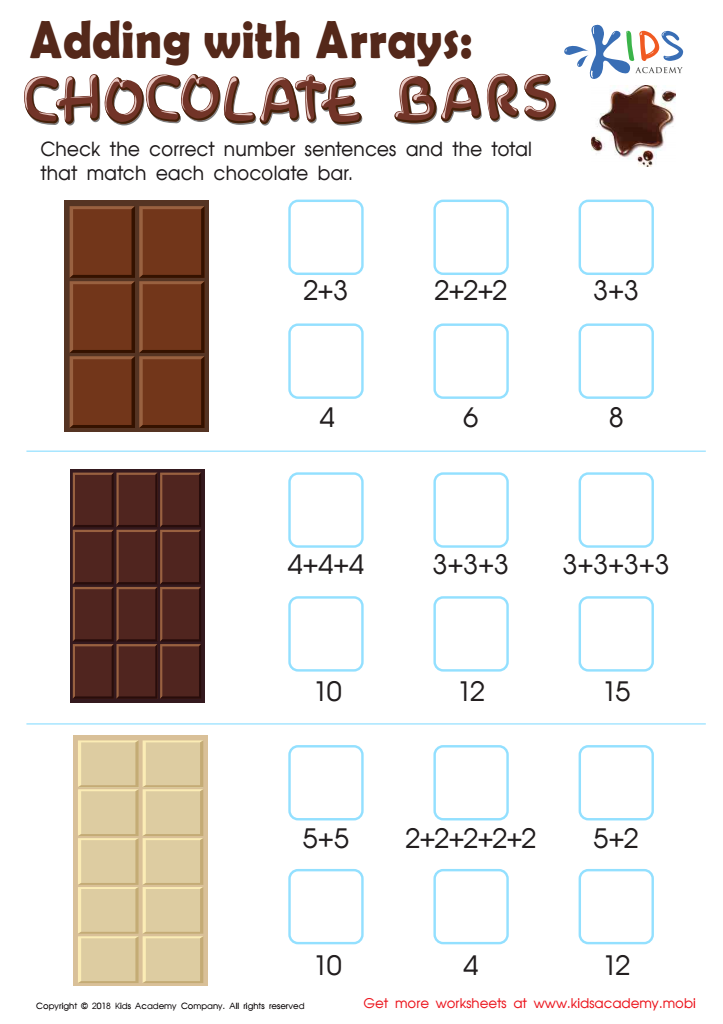

Adding with Arrays: Chocolate Bars Worksheet
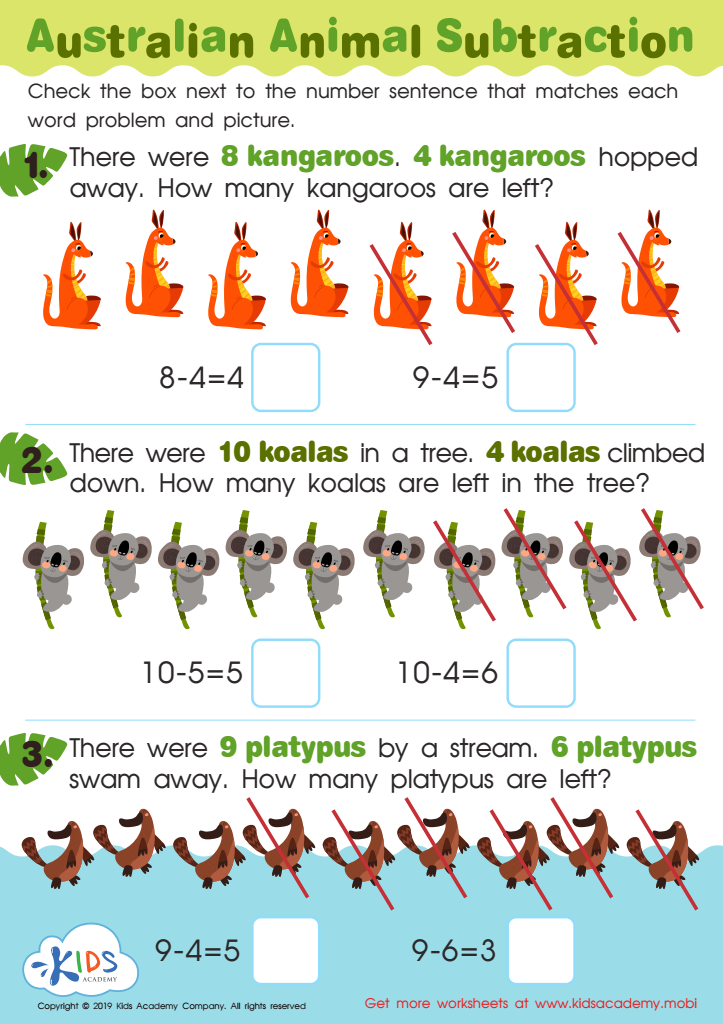

Australian Animal Subtraction Worksheet
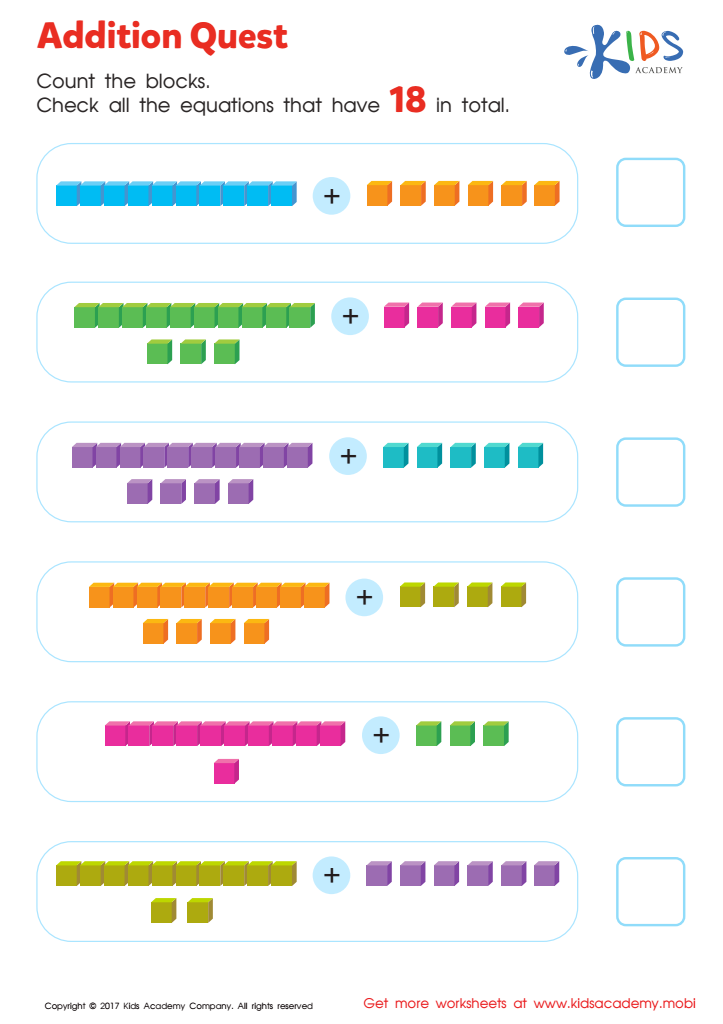

Addition Quest Worksheet: Part 2
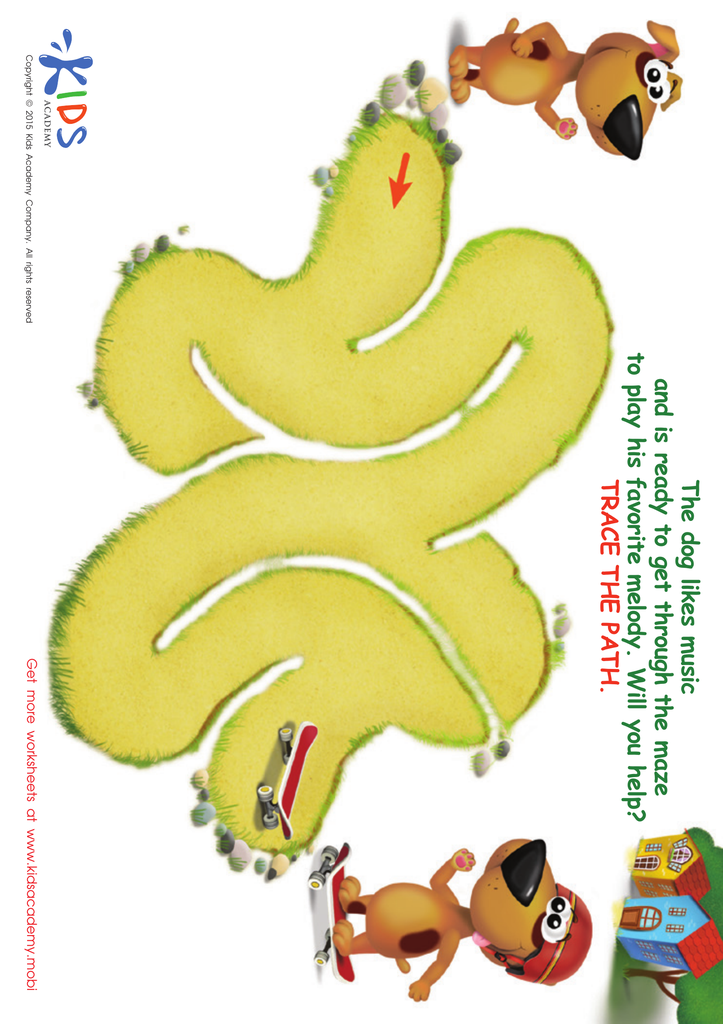

Skater Maze Worksheet
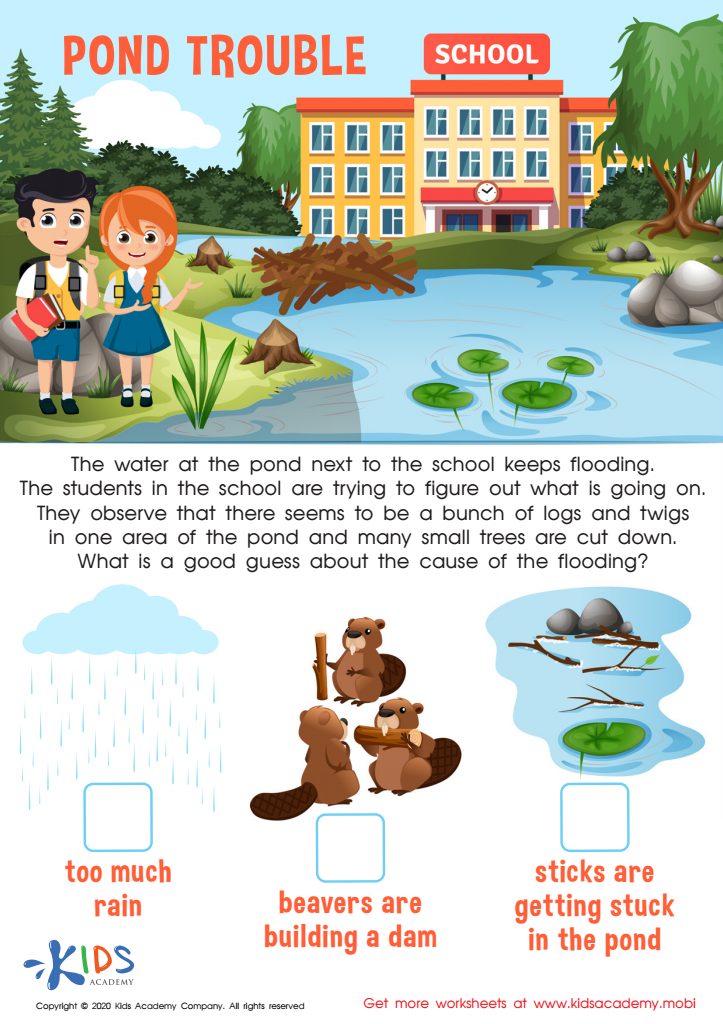

Pond Trouble Worksheet
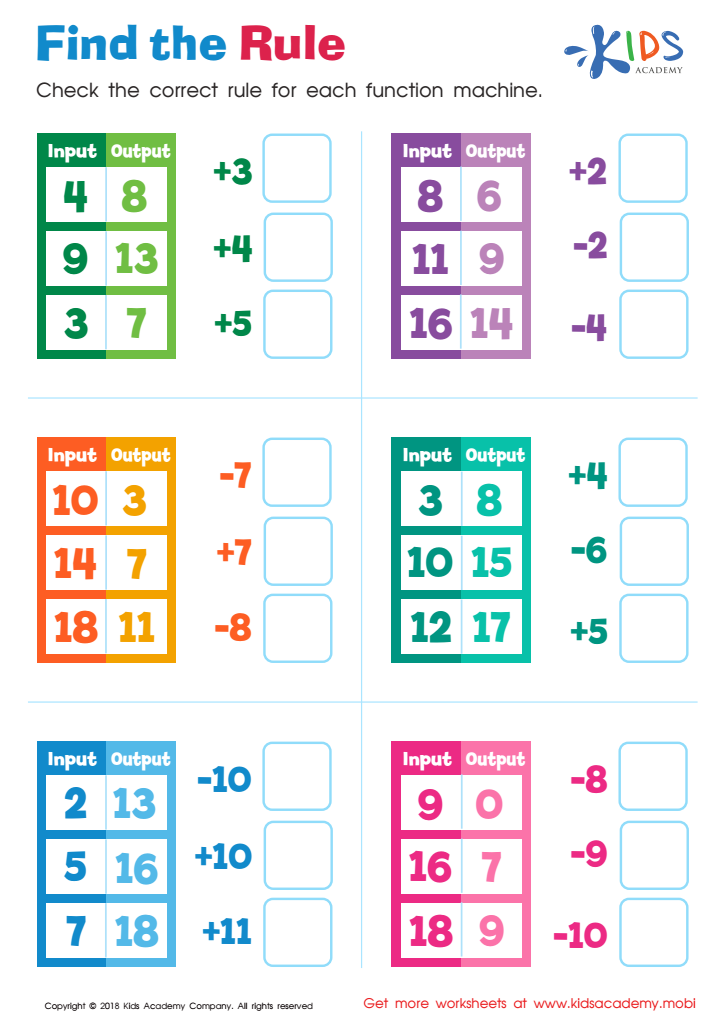

Find the Rule Worksheet
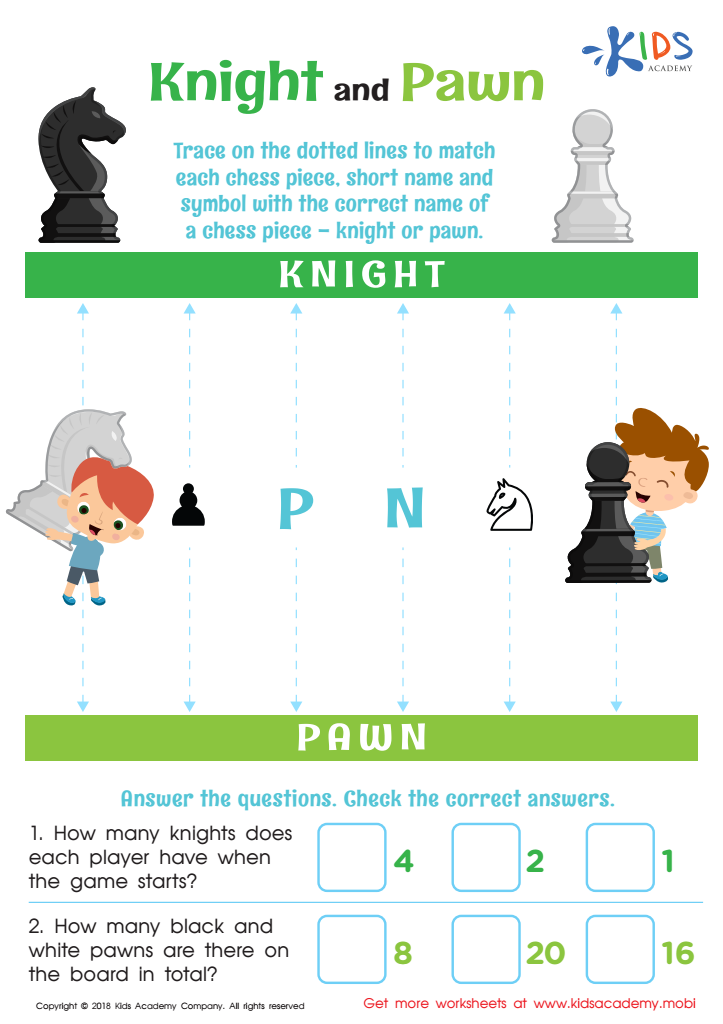

Knight and Pawn Worksheet
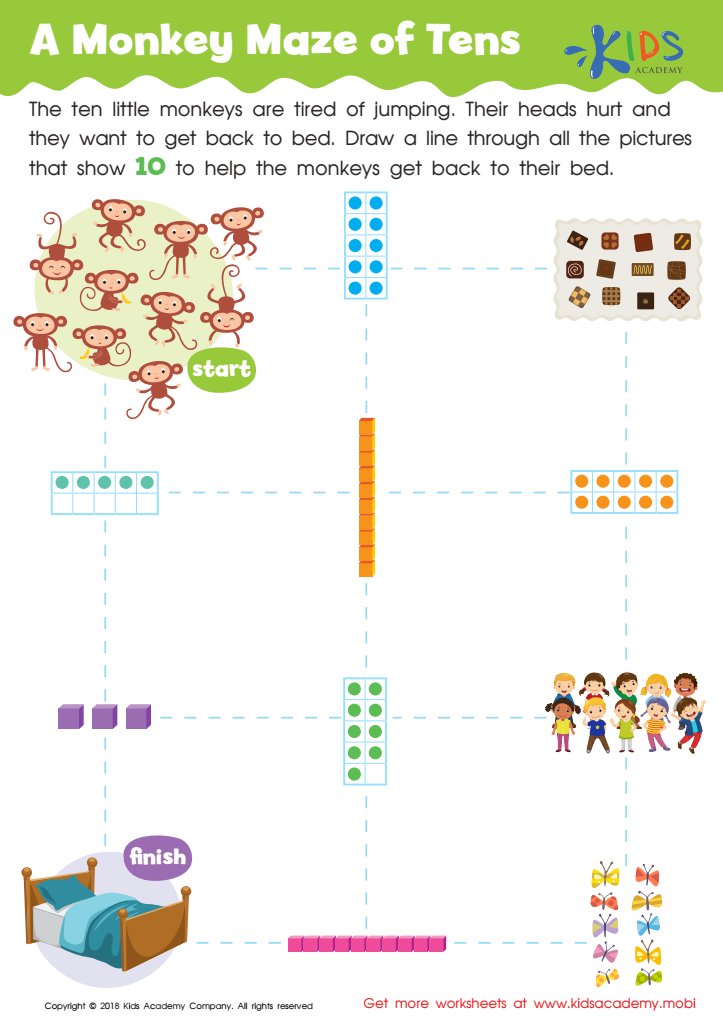

A Monkey Maze of Tens Worksheet
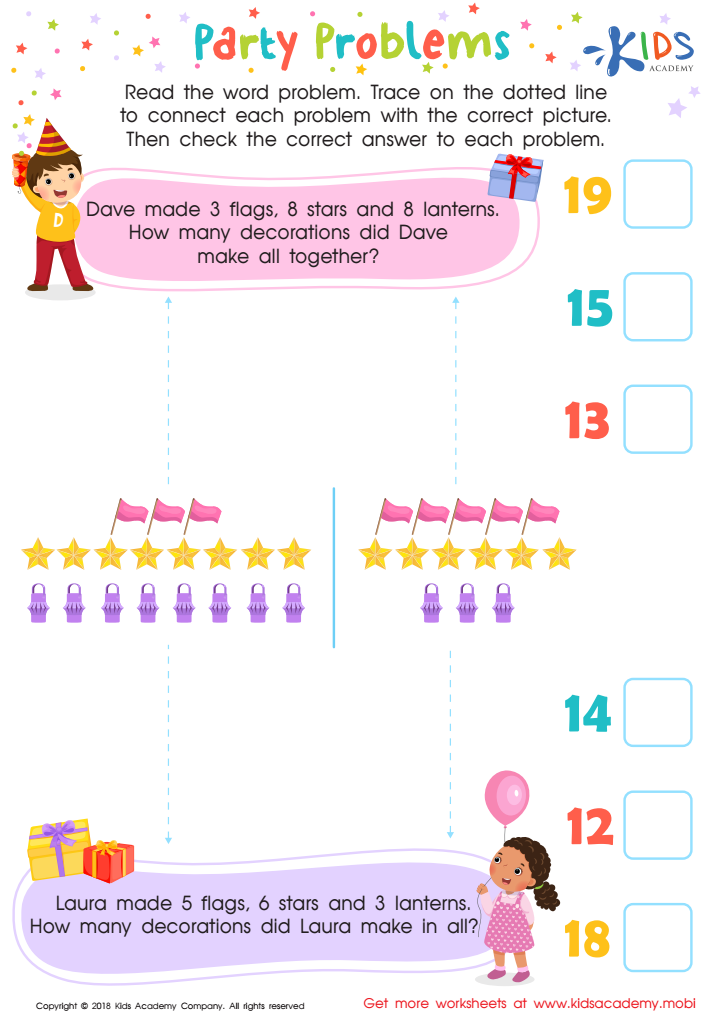

Party Problems Worksheet
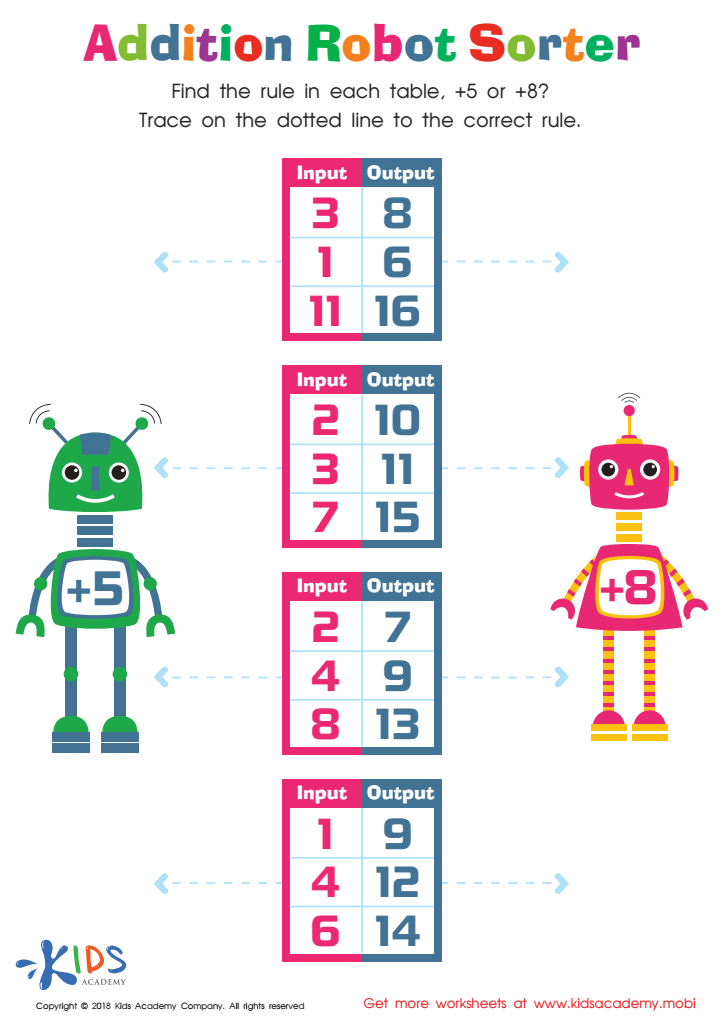

Addition Robot Sorter Worksheet
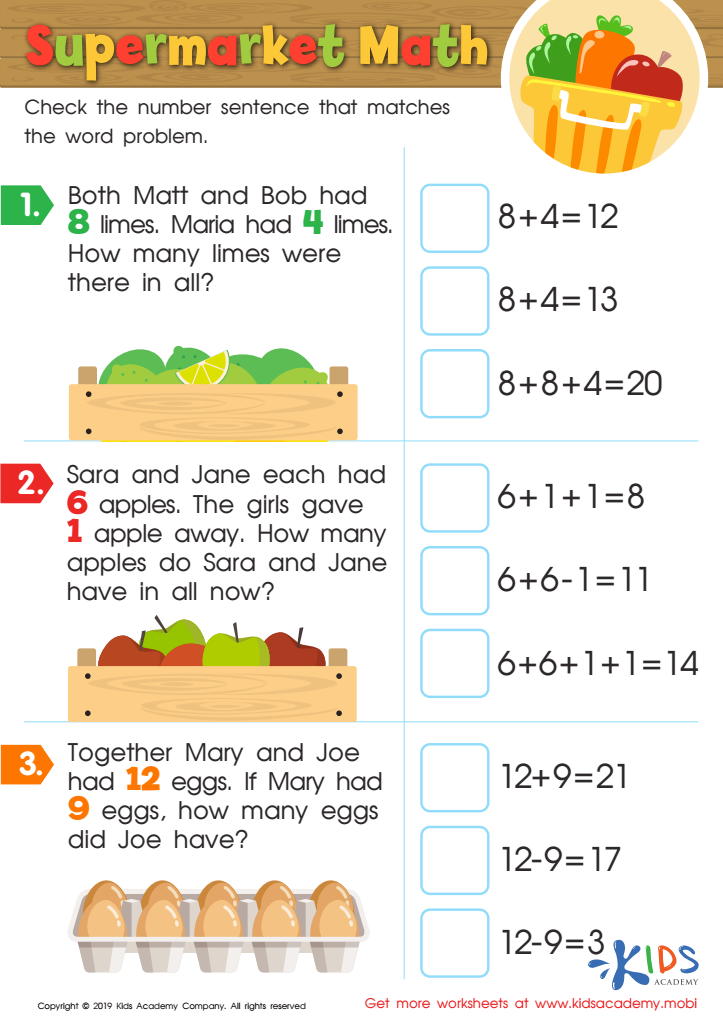

Supermarket Math Worksheet
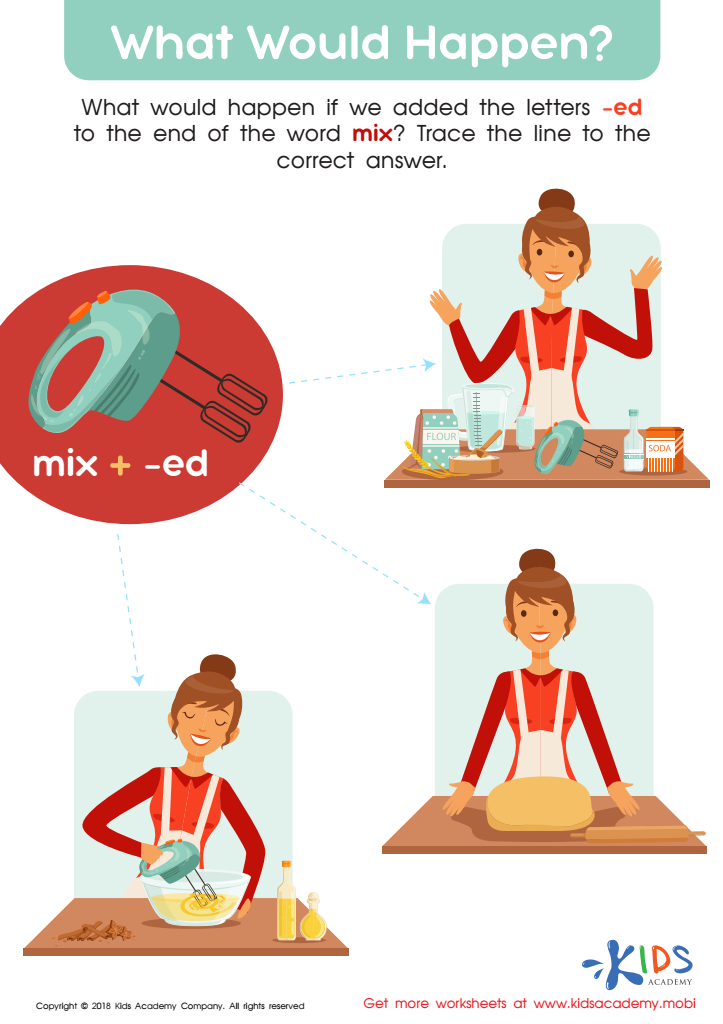

What Would Happen? Worksheet
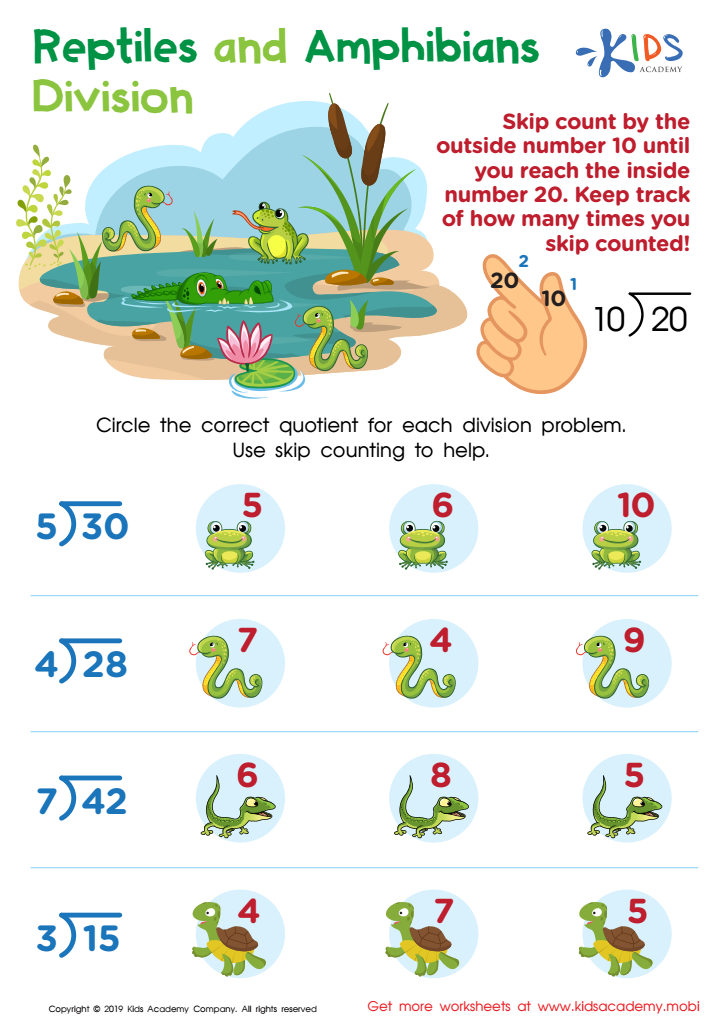

Reptile and Amphibians Division Worksheet
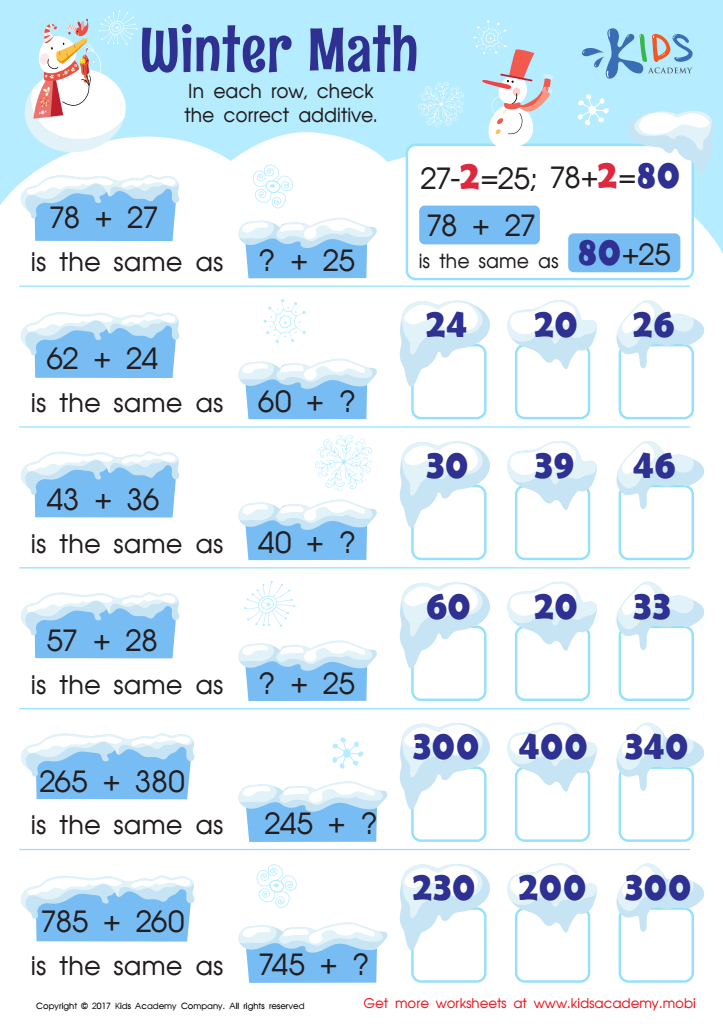

Free Addition Worksheet
Problem solving is a crucial skill for children ages 7-8, as this developmental stage is marked by increased cognitive abilities and a desire for independence. During these formative years, children are not only enhancing their academic skills but also building essential life competencies that shape their future success. By focusing on problem-solving, parents and teachers help students cultivate critical thinking skills that enable them to analyze situations, make informed decisions, and develop resilience when faced with challenges.
Additionally, problem-solving promotes creativity and collaboration. Group activities encourage children to work together, sharing diverse perspectives which foster social skills and teamwork. Furthermore, engaging in problem-solving activities enhances children's confidence, as they learn to navigate obstacles and celebrate their achievements. This groundwork prepares them for more complex challenges in later years, both academically and personally.
Moreover, teaching this skill in a supportive environment allows adults to model effective problem-solving strategies, nurturing communication and emotional regulation. As children approach increasingly complex concepts in school, a solid foundation in problem-solving will not only enhance their academic performance but also prepare them for the uncertainties of everyday life, making it essential for both parents and teachers to prioritize this vital skill.


 Assign to My Students
Assign to My Students
